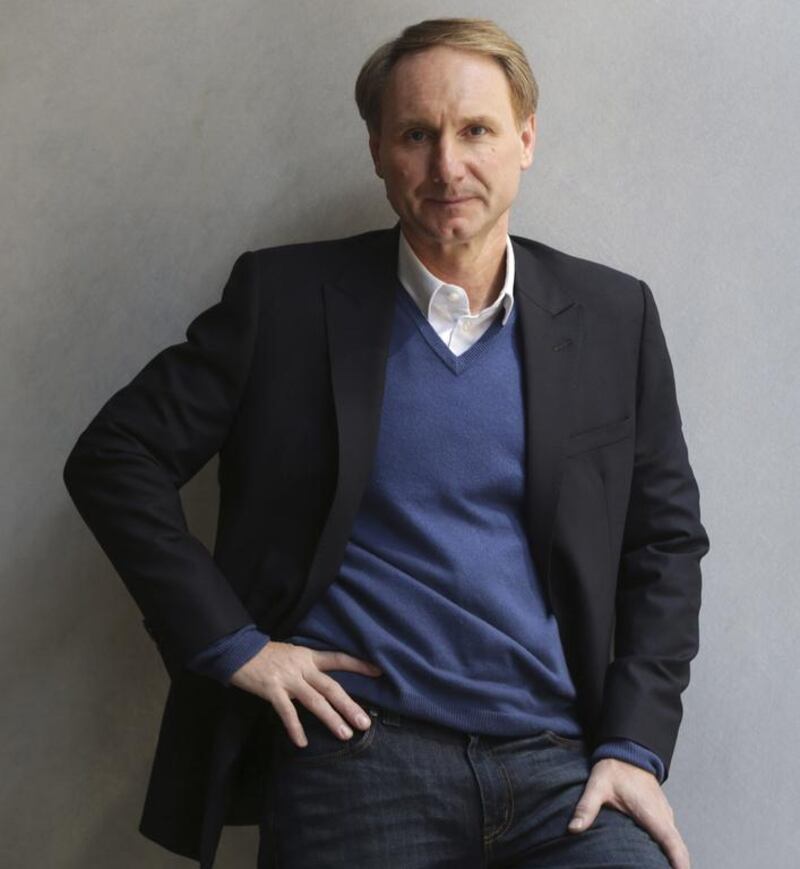The 33rd edition of the Sharjah International Book Fair begins on Wednesday, November 5, with perhaps the event’s biggest guest yet.
The American author Dan Brown has been dominating fiction charts for more than a decade, with his thrillers featuring the symbologist Robert Langdon – The Da Vinci Code, Angels and Demons, The Lost Symbol and, most recently, Inferno – amassing record-breaking sales.
He says he is looking forward to his maiden visit to the UAE, so that he can thank his fans in the region.
“I’ve known for many years that I have wonderful fans in the Arab world, and I’m happy at last for the opportunity to meet some of them in person,” he says. “The Sharjah book fair is highly respected around the world and the invitation to speak is an honour I’m anticipating with great enthusiasm.”
Your latest Robert Langdon thriller, Inferno, has been out for a year now. Looking back, are you happy with the way it has been received?
Every author who completes a novel holds his or her breath a bit on publication day, hoping that readers enjoy it. There are never any guarantees, so Inferno's popularity has been very gratifying, especially considering how much time and research I put into it.
That novel contains some of your most elaborate plotting yet. What is more fun, planning the plot or the writing itself?
I enjoy both aspects of the process, but in the case of Inferno, the research was especially fulfilling. Writing a novel about Dante was a great excuse to go back and reread The Divine Comedy and rediscover Dante's staggering influence on culture, religion, history and the arts. Despite Dante's enduring influence on the arts, though, most of us today have only a vague notion of what his work actually says, both literally and symbolically – which, of course, is of great interest to Robert Langdon.
Before The Da Vinci Code, you published Angels and Demons, Deception Point and Digital Fortress. When reading those books, they display the same driving narrative that made The Da Vinci Code successful. What was it about that novel in particular that made it a phenomenon?
Timing played a big role in the novel's success. The Da Vinci Code was published at a moment when people were eager to engage on the themes presented in the novel – particularly those of the sacred feminine, Christian history and the nature of religion itself.
The biggest credit often given to your books is that they are thrilling. Is that more dear to you than perhaps the literary critics who have been less flattering about your work?
The enthusiasm of my readers is far more important to me than anything else. Of course, I wish that every reviewer loved my work but that’s never the way things work in the creative arts. Whether you’re an author, a chef or a composer, all you have to guide you is your own personal taste – you create something that you yourself like and then you hope others share your taste. With that in mind, I simply set out to write a book that I myself would want to read.
Is it tough to maintain that motivation now that you have sold more than 200 million copies of your works?
When I graduated from university, I set as a goal “to have a creative life”. That is, to wake up every day and do something I love. I’ve always loved writing and I feel very fortunate to have been able to make a career of it. Yes, it is true that I no longer need to write books to pay the rent but because money was never my primary goal in writing, financial security has no effect on my passion to keep going.
Anything you miss most about your life before the fame?
Strangely, life feels very much the same for me. I still wake up at 4am every morning and face a blank page. My characters don’t care how many books I’ve sold and they still require the same amount of energy and attention. Although the writing process has remained unchanged, I’ve enjoyed new-found access to private research material and specialists, exciting opportunities for travel and exploration.
Do you imagine a Robert Langdon tale might be set in the UAE or in the Arab world?
A Langdon thriller set in the Arab world is a fun idea, although I would need to learn an enormous amount about this region before I would even consider trying to write about it. Robert Langdon is a specialist in western iconography and Christian art, so he would definitely be a fish out of water if I immersed him in a mystery set in the UAE. Then again, all things are possible, so perhaps this visit will inspire me in surprising ways.
[ sasaeed@thenational.ae ]






